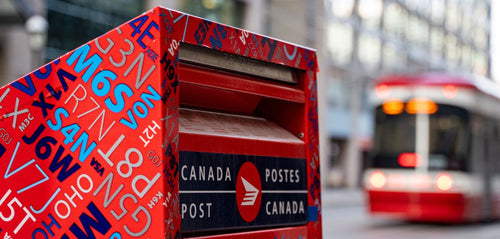#79: The Emperor's Hash: Napoleon's Lasting Legacy in Cannabis Culture
#79: The Emperor's Hash: Napoleon's Lasting Legacy in Cannabis Culture
One of the greatest military leaders in history, Napoleon Bonaparte, was a famous French military leader and emperor who wielded immense power and influence during the late 18th and early 19th centuries. His legacy is often associated with military strategy and administrative reforms, but few people know about his impact on the spread and cultural perception of cannabis in Europe.
In 1798, Napoleon led a large French military campaign into Egypt and Syria to establish control over the region. However, his encounter with cannabis during this campaign ended up playing a significant role in the spread and acceptance of cannabis in European culture.
How did a military leader's encounter with cannabis shape the perception and spread of this plant in Europe? And why is he relevant in the cannabis industry today? To find out, let's take a closer look at Napoleon's story and his connection to the fascinating world of cannabis.
The rise of an emperor: Napoleon’s military beginnings

Born into a minor noble family on the island of Corsica, Napoleon had humble beginnings. However, he rose through the ranks of the French military to become a powerful general by the age of 24. His military genius and strategic tactics helped him become the first consul of France in 1799 and eventually Emperor in 1804.
Under his rule, Napoleon introduced several reforms, including the famous Napoleonic Code, which modernized the legal system and promoted equality and individual rights. The principles of civil liberty, equality before the law, and the protection of property rights laid down in the Napoleonic Code shaped modern French society and influenced many other countries to adopt similar laws.
As emperor, he waged several military campaigns across Europe, defeating the forces of major powers like Austria, Prussia and Russia. His greatest victory was the Battle of Austerlitz in 1805. However, his constant wars and territorial expansionism made him one of the most controversial leaders in European history.
From battling on the frontlines to overseeing vast territories, Napoleon's life was full of challenges and triumphs. However, it was his military campaign in Egypt that would have an unexpected impact on European culture and the spread of cannabis.
The hashish factor: Napoleon's Egyptian expedition

In 1798, Napoleon led a large French military expedition to Egypt and Syria with the aim of establishing a French presence in the region and disrupting British trade routes to India. However, during this campaign, Napoleon encountered something that would have far-reaching consequences – cannabis.
Alcohol was scarce in the region, and the French troops turned to locally available substances for relaxation. They discovered that cannabis, or hashish as it was known, was widely used by the Egyptian population. It was believed to have medicinal properties and was used for recreational purposes as well.
The soldiers soon embraced hashish, and it became a regular part of their daily routine, leading to a decline in discipline and efficiency. This caught the attention of Napoleon, who believed that it could weaken their fighting capabilities. As a result, he issued one of the first modern drug prohibition laws in 1800 through his general Jacques-François Menou, banning the use of hashish among French troops.
Despite the ban, many soldiers continued to use cannabis, and some even started using it for artistic and creative purposes. When they returned to France after the campaign in 1801, they brought hashish with them, and its use spread rapidly among the artistic and literary circles of Paris.
Artistic awakening: The spread of cannabis in Europe

What happened next is surprising – the use of hashish became linked to artistic and literary movements in Europe, particularly in France. The Club des Hashischins, a group of writers and artists who met regularly to consume hashish and discuss creative ideas, emerged in Paris in the early 19th century. Members included famous names like Victor Hugo, Alexandre Dumas, and Charles Baudelaire.
These artists and writers were fascinated by the effects of hashish on their creativity and artistic expression. They would drink strong coffee laced with dawamesk, a greenish jam-like substance made with hashish, honey, pistachios, and spices. The effects of this concoction were said to enhance their senses and inspire creative thinking.
In addition to its influence on art and literature, hashish also gained popularity among the bohemian counterculture movement in Europe. It was seen as a symbol of rebellion against societal norms, leading to its association with alternative lifestyles and non-conformity.
This cultural shift contributed to the gradual acceptance and spread of cannabis in European society. As expressions of liberty and individualism gained momentum, the use of cannabis became less stigmatized and more widely accepted. What started as a military leader's attempt to prohibit its use ended up playing a significant role in shaping the cultural narrative surrounding cannabis in Europe.
The modern impact of Napoleon's cannabis legacy
Napoleon's encounter with cannabis may seem like a small footnote in his storied life, but it had far-reaching consequences that can still be felt today. The introduction of cannabis in Europe through the military campaign in Egypt was a pivotal moment that shaped artistic movements, drug policies, and cultural perceptions of cannabis.
Today, Napoleon's legacy lives on, and his relevance in cannabis culture is undeniable. From the popularization of hashish in Europe to its association with creative expression and counterculture, Napoleon's campaign in Egypt unknowingly set the stage for the widespread acceptance and use of cannabis in European society. His legacy may be complex, but one thing is certain – Napoleon left an indelible mark in the world of cannabis.
Back to all posts









